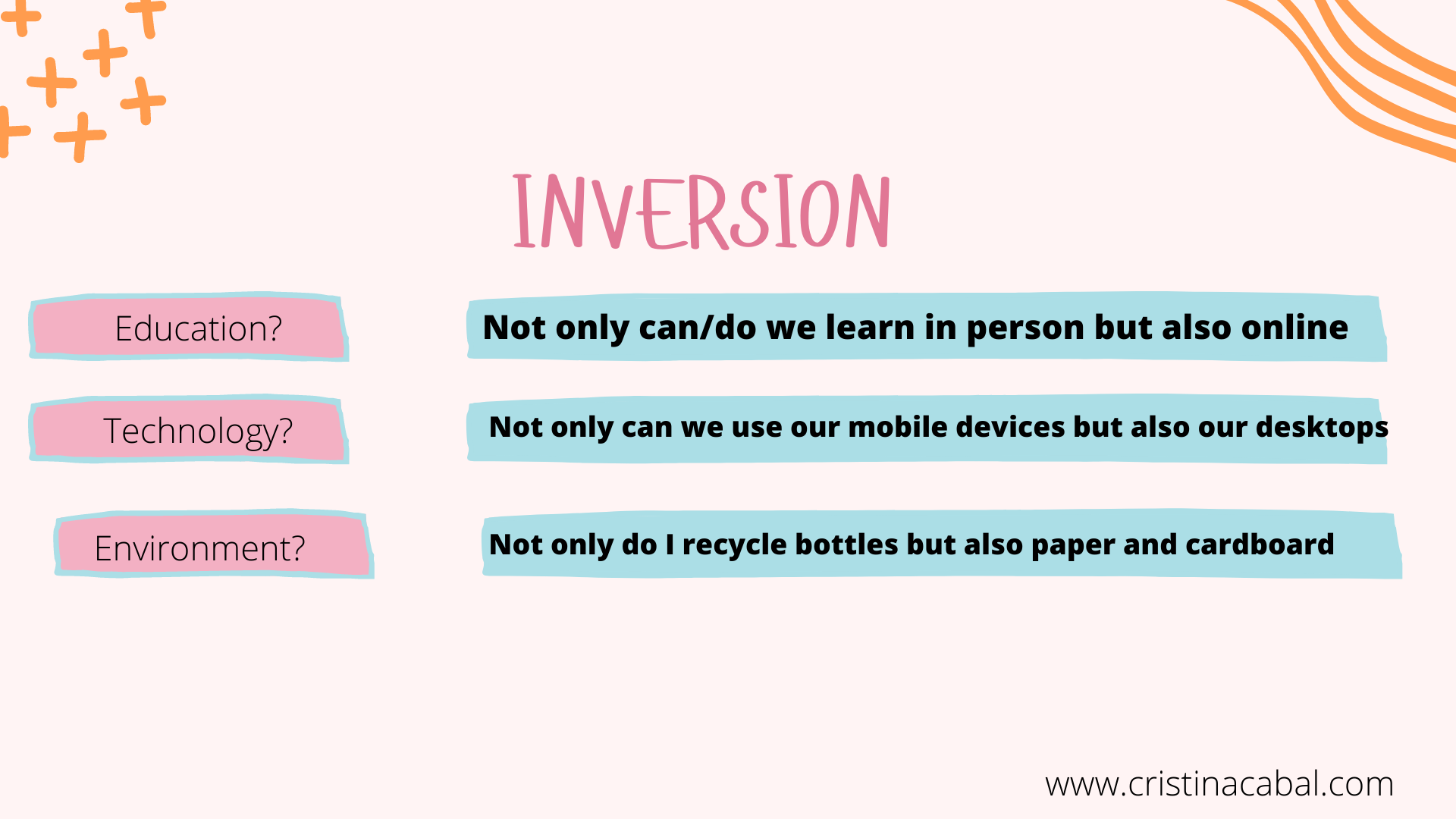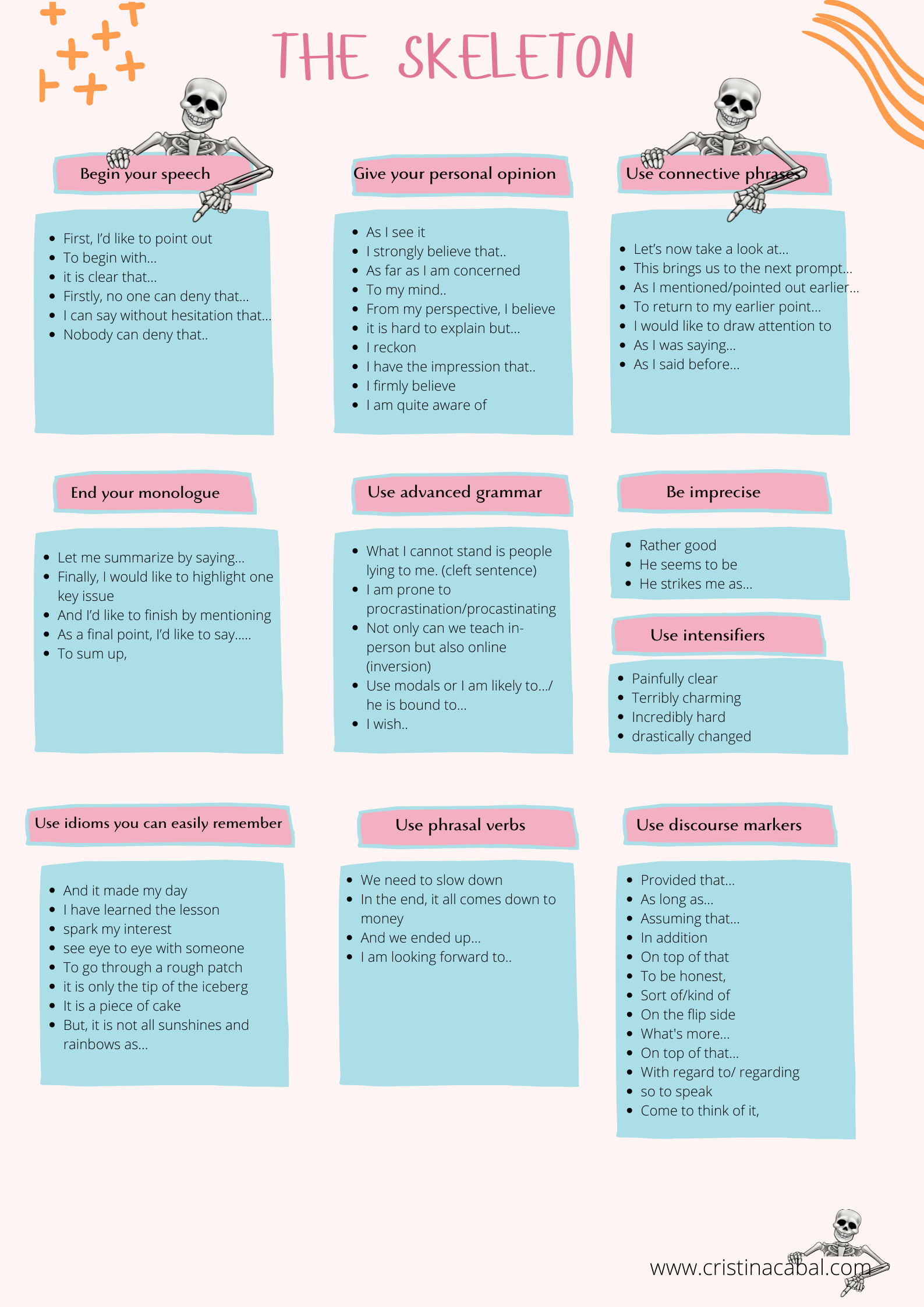I have never been politically correct so let’s not mince words. For an exam, you need to follow these three tips:
- study
- practise
- be smart

I know you are able to maintain a conversation at a decent level but this is not what an exam is about. An exam is about impressing the examiner. Yes! You heard me correctly! You need to make a strong, though not necessarily lasting, impression on the examiner(s).
Disclaimer: this is the way I would do the monologue. This does not necessarily mean it is the only way to approach it.
So, now that we are on the same page, the big question is…Do you want to ace your exam?
Assuming you have followed tips number 1 and number 2 above( I would reconsider taking the exam if you have not studied or practised, like a lot. ), here comes the most difficult part: bringing to mind vocabulary specific to the topic you have been given, which is part and parcel of tip number 3 and this brings us back to tip number 1.
Am I making any sense?
Tip 3: About being smart. General TIPS
- Say you are given a monologue with three prompts to talk about. They might also throw in some images for visual effect but you do not, and I repeat do not, need to describe them. Can you make references to them when you are speaking? Yes.
- You are not being tested on your honesty. So, if you feel you have nothing to say on the topic, lie, invent… all is fair in love and war!
- If you are allowed some time to organise your ideas, use that time in a clever way and plan. I have often seen candidates not taking this minute and making a mess of the exam just because they didn’t take the time to organise their ideas.
- You need to talk about all the prompts given. If you do not have much to say about a certain prompt, spend less time on it and introduce it by saying something like: I am not really much into… I am not an expert st/in…
- Brainstorm vocabulary (idioms, phrasal verbs, specific vocabulary to include). This is a unique step, and this where studying and feeling confident that you know the vocabulary is important. Listen up! You need to use a good range of vocabulary.
- Remember that you need to use a full range of grammatical structures and this is again where being clever is important. You need to think in advance of some “flashy” grammar you want to use. OK. Say you want to use an inversion. Easy…

I could go on and on but I think you get the gist.
NOTE: These are some ideas and you should be adding to this list the items you feel most comfortable with. You don’t have to use these ones, what you need to bear in mind is that you have to use advanced vocabulary and structures. So, you need to pull your weight and add to this list or cross off what you don’t feel confident using. It is up to you, now.
It is important to practise key phrases, which you can use no matter the topic in the exam. What I like to call the “skeleton” of your monologue and you need to write it down and say it and try it with different topics and figure out a way to make it work with whatever topic you land yourself with.
- write it down
- say it aloud
- practise it with different topics
So, here you have some ideas for your “skeleton”:
Download the poster here

I know that taking an oral exam is a nerve-wracking experience but, if you practise and study, I cannot promise it is going to be a walk in the park but it will certainly be easier.
NOTE: my students will be using Flipgrid to record themselves doing a number of topics.

OMG! If only! I make mistakes all the time. When I first began publishing, I felt like really embarrassed. Most of the time they were typos, but they were there, for all to see. I also make grammar mistakes. I cringe when I see them. That’s when I feel truly mortified but I have learned to live with them. It is either this or giving up sharing. Thanks a lot. I mean it.
You’re spot on! Mea culpa. I should have known better. You never make spelling mistakes 🙂
Thanks again for sharing your work!
Hi Laura
So glad I could be of help.
Regarding the spelling of the word, I have to say that nerve-wracking is an acceptable variant of the adjective nerve-racking.
I am sure I make mistakes all the time but this is not one of them. 🙂
Thanks for your kind comment!
Hi Cristina,
Thanks for your amazing work! I have taken a lot of ideas from your blog over the past two years.
This is just to let you know that you made a spelling mistake. It should be nerve-racking , I think.
Felices fiestas!
Laura